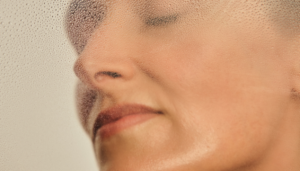Are you back from your holidays? Let us guess. With all your pending to-do lists, are you already feeling overwhelmed? It might be time to pause, and reflect – how is your mental health?
Your brain is arguably the most important organ in your body. Though it sits in a dark, enclosed space, it interprets all the information you feed it through your different senses.
What you see, hear, taste, feel or smell, are all detected by receptors in or on your body, which then sends these signals to be interpreted in your brain.
In this article, we want you to have a closer look at your mental health, why it’s so important for longevity, and what you can implement easily in your daily life to boost your brain health.
After all, your mental health impacts every area of your life. Start giving it the attention it deserves.
In this article
Free guide to reverse your biological age

- Master the science of rejuvenation.
- Apply proven tips to turn back the clock.
- Transform your health with top longevity specialists.
Defining mental health

According to WHO, mental health is a basic human right that is crucial to personal, community and socio-economic development. You can think of it as a state of mental wellbeing that allows you to cope with life stresses (life is pretty stressful, not gonna lie), realise your different abilities, learn and work effectively, contribute positively to your community, and maintain healthy relationships with your friends, family and colleagues.
It is basically an umbrella term that captures everything from your daily mood to severe mental illnesses. There are 3 main pillars of mental health that we should all know about:
1. Mental illness
A clinical term that describes specific health conditions like depression, anxiety disorders, schizophrenia, eating disorders, and addictive behaviours. These can be caused by:
- Individual Factors (e.g. genetics, substance use, lifestyle)
- Social Factors (e.g. harsh parenting, your neighbourhood, the type of community you live in or taboos existing across different cultures)
- Structural Factors (e.g. economical, geopolitical or environmental)
2. Mental wellbeing
This is a strength-based term that can exist simultaneously with any mental disorders. A sense of connection, belonging, or sense of purpose can enhance your mental health.
3. Mental fitness
An evolving term that emphasizes the importance of taking care of your mental health (aligning with Avea’s philosophy). These include meditation, self-care practices, and exercising. It’s important both for wellness and in times of illnesses.

No Long Term Health Without Mental Health
We now know how a healthy mind is an inherent part of a healthy body. Your brain and body communicate with each other in a multidirectional flow of information through hormones, neurotransmitters or neuropeptides, and cytokines (just think of them as important chemical messengers).
A mental illness occurs when (part of) your brain does not function properly, affecting your body as well. Mental illness can affect thinking, perception, emotion, signalling, behaviour, and physical health.
Usually, they present themselves in terms of lack of focus or attention, a rollercoaster of emotional highs and lows (days of extreme happiness followed by days of extreme sadness and loss of meaning), sleeping problems, constant headaches or loss of appetite.
Mental health, physical health & lifespan
Unresolved mental illness can increase the risks of:
- Coronary heart diseases and arthritis
- Gastrointestinal distress, including lingering symptoms of constipation, bloating, reflux, nausea, vomiting, abdominal pain, diarrhoea, and cramps.
- Multiple types of cancers
- A malfunctioning immune system due to disrupted hormonal balance:
A hormonal imbalance can trigger a series of metabolic reactions that increase the amount of detrimental by-products, called free radicals. These are the BAD guys- everything they touch, they destroy.
Free radicals place oxidative stress on our DNA, shortening our telomeres (protective caps of our chromosomes), and thus accelerate cellular ageing.
At Avea, our longevity experts came up with a unique formulation of 5 natural ingredients to enhance your immune system and boost your brain health.
The powerful antioxidants work in synergy to reduce the risks of oxidative stress and chronic inflammation that occurs due to the accumulation of free radicals.

Besides, with an impaired immune system, one becomes more prone to infectious diseases, like HIV, Hepatitis, Tuberculosis, or even Covid-19, since the body can no longer fight pathogens like viruses, bacteria or yeasts properly.
- Type II diabetes, disrupted sleep cycles, and obesity, since one becomes less likely to engage in physical activity and look for solace by binge-eating or becoming a potato couch.
- Drug abuse – Using drugs may become the way of running away from the countless thoughts that run through one’s mind every second. The drugs basically become an escape from reality.
- Poverty – This one is more like a cycle. When you’re mentally ill, you’re less likely to keep a stable job. With no job, you become more stressed. This decreases your productivity, further reduces your chances of getting or maintaining another job.
- Suicide – 90% of suicide victims have some sort of mental issues.
- Physical ageing – wrinkles, saginess, dry skin will appear earlier.
Mental fitness – How to be a pro

‘‘Just one small positive thought in the morning can change your whole day.‘’
First things first, let’s debunk some myths. Positive thinking WORKS. Studies have demonstrated how those who practise positive thinking experience an average lifespan of 8–13 years longer. Why? An excess of stress hormones, like cortisol and adrenaline, accelerate cellular ageing.
Positive thinking helps reduce such hormones, but also induces the release of your happy chemicals, such as serotonin, which actually stimulate your longevity pathways.
Science based tips to boost your brain health
- Do your best to enjoy 10–15 minutes of sunshine daily (even on cloudy days), and do not forget your sunscreen. Sunlight produces Vitamin D, which is a BIG mood elevator.
- Take 15–30 minutes to go for a walk in nature – it could be a stroll through a park, or a lake nearby. This can increase your energy levels, reduce depression and boost your overall well-being.
- Something is bothering you? Take it all out on paper. Writing about your unpleasant experiences can significantly reduce symptoms of depression.
- Take a cold shower for at least 2 minutes! It may increase your endorphins, or feel-good hormones in your brain, which will ease the symptoms of depression or anxiety.
- Boost your brain power by treating yourself to a couple pieces of dark chocolate every few days. Dark chocolate contains natural alkaloids which work in synergy to improve alertness and focus.
- Controlling your breath can help you manage stress and stress-related conditions. So, sit or lie down comfortably, and take a moment to match your breath to this video.

BONUS TIP: Try something outside of your comfort zone. Don’t shy away from adventure and excitement!











